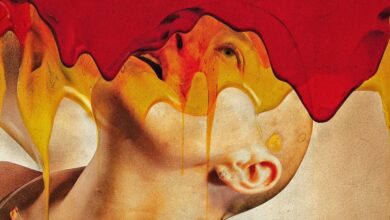Death of a Unicorn Review: Corrupt Magic and The Art of Merging Horror and Comedy
“Death of a Unicorn” is a horror comedy written and directed by Alex Scharfman, interpreted by Paul Rudd, Jenna Ortega, Will Poulter, and Tea Leoni and Richard E. Grant. The film had its world premiere at the South by Southwest Festival. Millenials grew up reading Little Chills, the horror book series designed for boys and girls aged between eleven and sixteen (although there are those who, in the secret of their bedroom, started much earlier and finished much later). It was a series of books designed just for them, so much so that they could be purchased on newsstands together with stickers and stationery with pens and notebooks. The protagonists were their peers; they faced monsters, entered haunted houses, and had to flee the zombies. The millennial mind can only return to Little Chills in front of Death of a Unicorn, the new film with Jenna Ortega produced by A24.
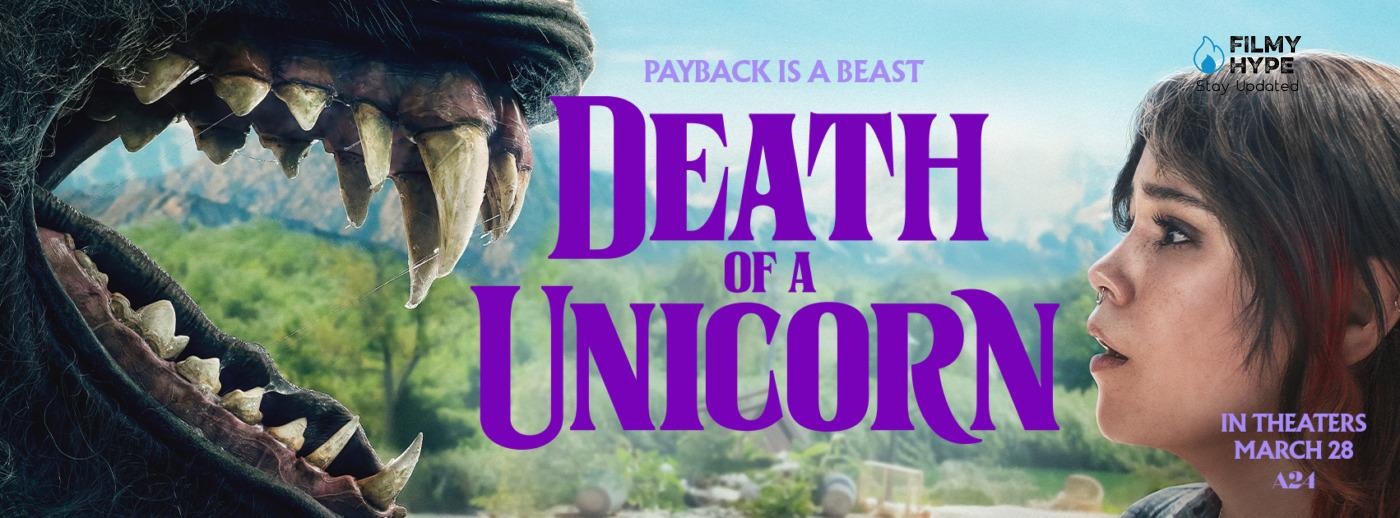
Forget the candy pink creatures that rage in the sugary communication of our days; the unicorns can be something different, more. Better. He had made us glimpse it. Shazam! With its second chapter, he confirms it is Death of a Unicorn, the film that marks Alex Scharfman’s directorial debut after being noticed in the production field. And precisely in the role of executive producer of his first work, we find a name that stands out, an excellence of the world of contemporary horror like Ari Aster, in addition to the safety of a brand like A24, which I Wonder Pictures has the honor of regularly bringing to our rooms. In the cast of the film, in the cinema since April 10, we find one of the most popular new stars in Hollywood, Jenna Ortega, alongside Paul Rudd, Will Poulter, Téa Leoni, and Richard E. Grant. It is curious how unicorns, mythical creatures rich in symbolic meaning, are so little present in contemporary cinema, often confined to children’s productions. Death of a Unicorn – from today in the room with I Wonder Pictures – instead decides to distort its imagination: here, the unicorns are not at all reassuring. To be even more disturbing, however, is not the creature itself, but the stupidity and greed that move the human characters involved in this new A24 experiment.
Death of a Unicorn Review: The Story Plot
Elliot (Paul Rudd) and Ridley (Jenna Ortega) are a father and daughter heading for Odell Leopold’s house (Richard E. Grant), a wealthy pharmaceutical tycoon. Elliot is a lawyer who is trying to get into Odell’s graces and, to achieve his goal, has decided to accept the invitation to his mansion immersed in a park lost in the mountains. During the journey, Elliot and Ridley’s car invests what looks like a wild animal, which instead proves to be a unicorn cub. While at the bedside of the lifeless animal, Ridley touches his horn and, for a moment, comes into contact with a distant and unknown world. Elliot loads the animal into the car thinking he is dead, but once he arrives at his destination, he will discover not only that the unicorn is alive, but it has magical powers capable of healing from small wounds to disabling diseases. Odell throws himself headlong, and together with his wife, Belinda (Téa Leoni), and his son, Shepard (Will Poulter), he will do everything to get hold of the unicorn’s body. Too bad that the puppy has a family that has come looking for him and that has every intention of making him pay the human beings who have hurt him.
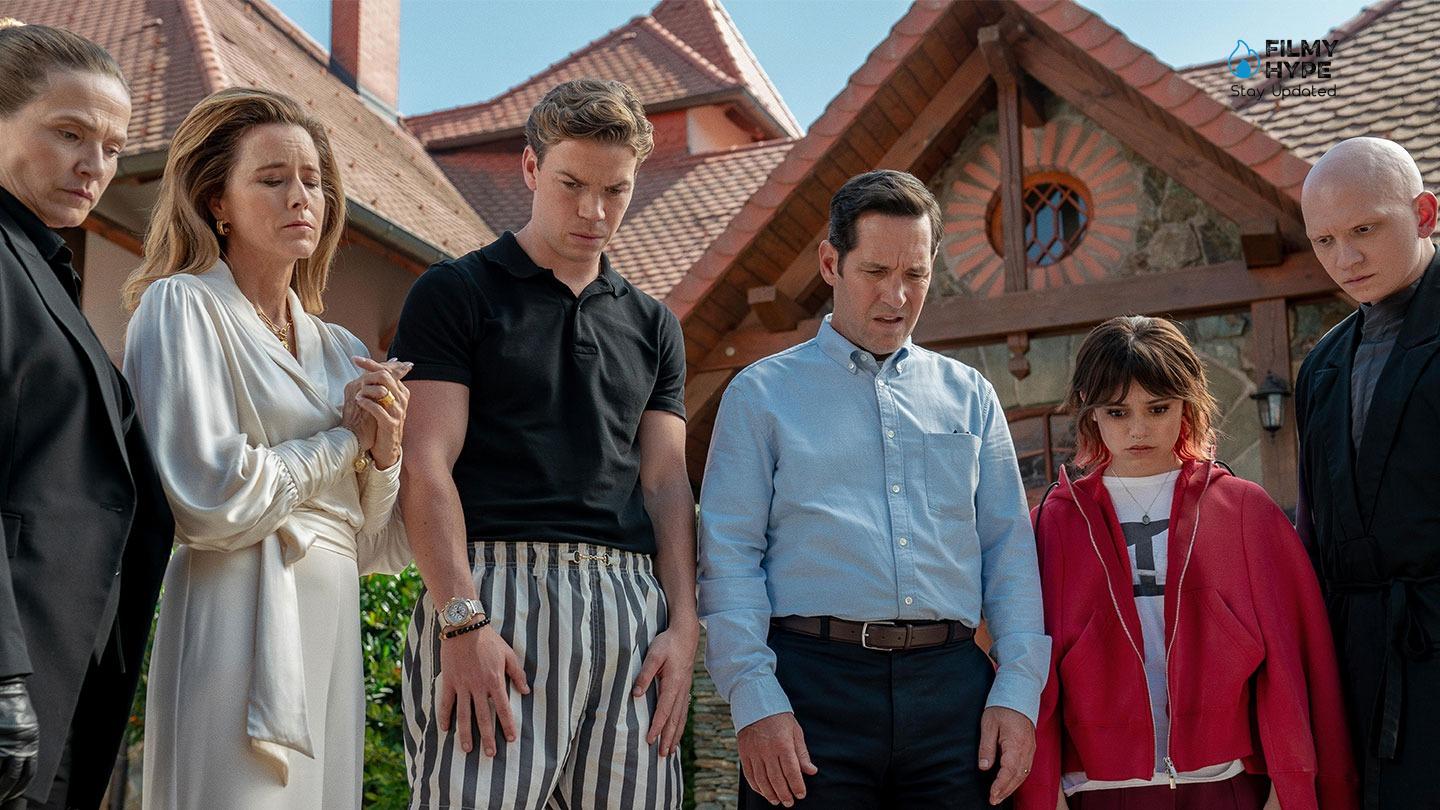
The plot starts from an incipit as absurd as it is captivating: Elliot (Paul Rudd), a corporate lawyer, is traveling with his daughter Ridley (Jenna Ortega), disillusioned a university student, towards a retreat in the Canadian Rockies, guests of its leader billionaire Odell Leopold (Richard E. Grant). During the route, Elliot accidentally hits a unicorn. Ridley, a mother orphan looking for meaning, develops a spiritual bond with the injured animal. Elliot, on the other hand, kills him with a key English, discovering shortly after the creature’s purple blood has miraculous properties to heal allergies, acne … and even cancer. The corpse of the unicorn immediately becomes exploited by the Leopold family – an arrogant parody of capitalism pharmaceutical, inspired by Sacklers – and the plot turns into one race for profit, while new mythological creatures emerge thirsty for revenge. Scharfman tries to place his film in the vein of anti-elite satires like Triangle of Sadness, Glass Onion, or Succession, but the intent soon ends in predictability. Each character plays a role already seen: the dying and colonial patriarch (Grant), the superficial wife (Leoni tea), the idiot son (an enjoyable one Will Poulter), and the exhausted servant (Anthony Carrigan, always effective). Ortega, unfortunately, is little exploited, reduced to embodying the stereotype of the “Gen Z wise and disillusioned” to which sculpted jokes are entrusted for memes such as: “Philanthropy is reputation recycling for the oligarchy”.
Death of a Unicorn Review and Analysis
Death of a Unicorn was born from a pretty good suggestion: What if unicorns were not benign creatures but real monsters? This is the first big surprise of the film that transforms a peaceful weekend of fear into a kind of fantasy Jurassic Park in which the protagonists will have to escape the ferocity of these fantastic animals. Unlike Jurassic Park, this is a real children’s film, designed to be enjoyed by them and to let the parents who accompanied them to the cinema spend a couple of fun hours. Death of a Unicorn touches on important issues such as the relationship between man and nature and, listen, hear the idea that death can be accepted and accepted without being afraid of it. Moreover, the younger generations are very attentive to issues such as the protection of the environment and mental health, here told and declined intelligently between a chase and a splatter scene. Death of a Unicorn marks the directorial debut of Alex Scharfman, who previously worked as a producer for numerous titles, including Let’s Knock Down the Man and Rinascita. The director, Ari Aster (Midsommar), is the executive producer of the film.
Tea Leoni is magnificent and deserves a part in The White Lotus since she is very credible in the role of the rich and cynical Belinda. Take the kids to the cinema, buy a large bucket of popcorn, and enjoy the show. Death of a Unicorn arrives at the cinema on April 10, distributed by Wonder Pictures. “Death of a Unicorn” looks like an original dark comedy that mixes fantasy and horror elements in a surprisingly effective movie cocktail. The film follows the events of Elliot Kintner, played by the always reliable Paul Rudd, and his daughter Ridley, brought to the screen by a convincing Jenna Ortega. The story develops when father and daughter, during a journey to the luxurious home of the wealthy Leopold family, accidentally invest in what turns out to be a unicorn puppy. This harmless event becomes the catalyst for a series of situations that are both surreal and disturbing within the Leopold estate. The discovery of this mythological creature, far from being a wonderful event, drags the protagonists into a whirlwind of increasingly bizarre and dangerous events, revealing dark behaviors related to the host family and their pharmaceutical company.
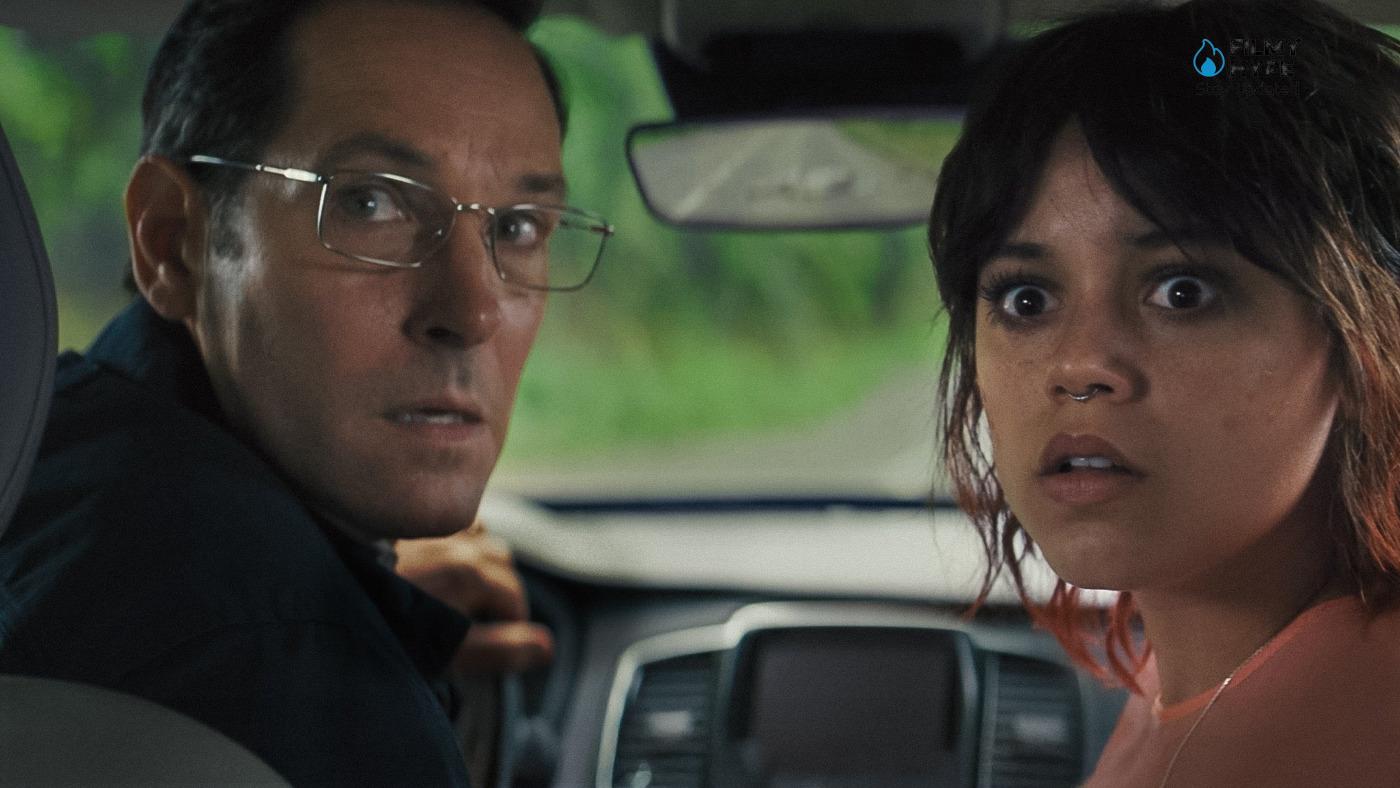
The narration unfolds through a progressive escalation of tension, where the initial amazement at the discovery of the unicorn gradually turns into restlessness as the true intentions of Leopold emerge. This narrative evolution allows the film to pass fluidly from moments of comic lightness to sequences full of suspense, creating an unpredictable and engaging visual experience. Paul Rudd confirms its actor versatility, bringing the usual charisma and humor to Elliot’s character, although some of the jokes assigned to him are occasionally out of context. However, his interpretation manages to effectively convey the growing unease and moral conflict of the character, divided between the opportunity for economic gain and the protection of an innocent being.
Jenna Ortega demonstrates remarkable interpretative maturity in the role of his daughter, Ridley, moving naturally within this strange narrative universe. The young actress confirms her talent in alternating moments of adolescent vulnerability with scenes of greater emotional intensity, establishing a bond with the unicorn that becomes the emotional heart of the film. The supporting cast shines equally: Richard E. Grant offers a solid and multifaceted interpretation of Patriarch Odell Leopold, instilling in the character a perfect combination of aristocratic charm and disturbing ambiguity. His stage presence makes credible the power his character exerts on others. Leoni tea manages to give a bizarre personality to Belinda’s character, avoiding the risk of reducing her to a simple stereotype of the powerful man’s wife. Her interpretation gradually reveals the cracks in a facade of perfection, leaving a glimpse of a woman ready to make morally questionable choices. Will Poulter effectively completes the eccentric family as Shepard, the son of the Leopolds.
His is perhaps the most surprising interpretation, capable of transforming a potentially secondary character into an enigmatic and fundamental presence for the development of the plot. Alex Scharfman, with the dual role of director and screenwriter, demonstrates a remarkable ability to balance contrasting tones. The script succeeds in the difficult task of merging irreconcilable elements – comedy, fantasy, and horror – while maintaining narrative consistency and a good rhythm. The dialogues are mostly incisive and functional, with some witty jokes that lighten moments of tension without compromising the general atmosphere. The narrative structure, divided into well-defined acts, allows the viewer to gradually adapt to the change in tone, from the almost fairytale premises to the darkest revelations of the ending. The tension is dosed with balance, and the twists and turns are well positioned, although some comic moments appear inappropriately inserted in contexts that would have required greater emotional consistency.
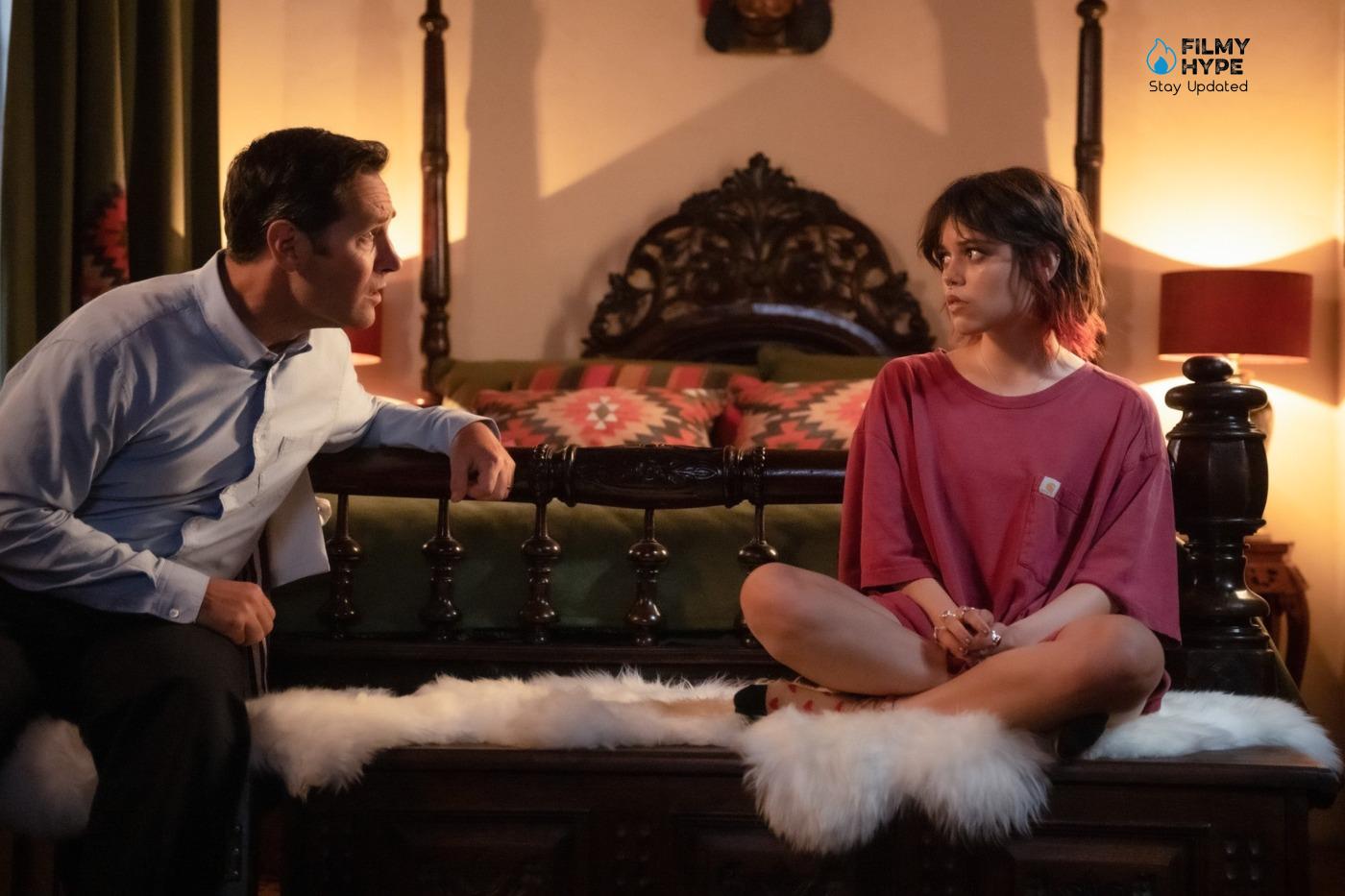
Also noteworthy is Scharfman’s ability to address, through the metaphor of the unicorn, current issues such as the exploitation of natural resources and ethics in the field of pharmaceutical research, without ever being didactic or weighing down the narration. From a directorial point of view, Scharfman shows a sure hand in alternating claustrophobic shots, which feed the sense of tension, to more airy scenes. Particularly effective are the sequences set in the estate, where cold lighting and distorted perspectives contribute to creating a sense of alienation. In contrast, the outdoor scenes take advantage of breathtaking naturalistic panoramas, creating a deliberate contrast between the beauty of nature and the cruelty of human actions. This visual contrast effectively serves the narration, helping to create that feeling of unease and estrangement that characterizes the entire work. Also noteworthy is the director’s ability to build dynamic but always legible action scenes, avoiding the visual confusion that often afflicts similar productions. The overall sound design deserves special mention, with a wise use of silence and environmental sounds that significantly contribute to the construction of the atmosphere.
On the special effects front, the CGI used to create the protagonist unicorn works overall but presents some inconsistencies. In some moments, the creature appears convincing and organically inserted in the context, especially in the night scenes or in the twilight, where limited lighting hides any imperfections. In other sequences, especially those in daylight, its digital presence is more evident, partially compromising the spectator’s immersion. “Death of a Unicorn” goes beyond simple entertainment, offering a reflection on the relationship between humanity and nature, on greed, and on the moral consequences of individual choices. The unicorn is not only a fantastic creature but becomes a symbol of purity in a world corrupted by greed and the desire for power. The contrast between the innocence represented by the young Ridley and the calculating cynicism of the Leopolds offers further food for thought on the loss of innocence and the difficulty of maintaining moral integrity in a world dominated by economic interests.
The father-daughter relationship, initially presented as problematic, evolves credibly throughout the film, offering an emotional subtext that enriches the main narrative. “Death of a Unicorn” stands out in the contemporary cinema landscape for its thematic and stylistic singularity. The bold fusion of genres could easily result in a tonal mess, but thanks to a confident direction and a close-knit cast, the film manages to maintain its own coherent identity. The film manages to entertain on multiple levels: as a black comedy full of surreal moments, as a fantasy tale with horror elements, and as an allegory on the dangers of reckless exploitation of natural resources. The ability to satisfy different audiences, from lovers of genre cinema to those looking for deeper narratives, is one of the work’s greatest strengths. Despite some technical imperfections and some moments in which humor seems forced, Scharfman’s work wins over for the originality of the proposal and the ability to surprise the viewer, alternating moments of tension with comic and surreal situations, all filtered through a fantastic lens that does not give up horror nuances.
The mystical “aspect” of history soon leaves room for horrific humor. Some sequences in which the unicorns are unleashed are well done, but overall, the cast appears not very harmonious despite the talent of the performers. Leopold’s work is like incarnations of a delusional bourgeois hypocrisy, while the characters played by Paul Rudd and Jenna Ortega, although with solid evidence, are not very incisive and difficult to believe. Only towards the end can their father-daughter dynamic finally find a certain emotional strength. Instead, they stand out, with spot-on comic times, Will Poulter and Téa Leoni, protagonists of some of the most successful moments of the film. Death of a Unicorn is also proposed as an allegorical reflection on contemporary America, a country where the ideal of collective prosperity has given way to a driven individualism and unrestrained speculation. The film ideally fits into the rebirth of American horror, born from the collective shocks of the twentieth century – from the assassination of Lincoln to that of JFK, up to the trauma of Vietnam – and today fueled by identity crises, social tensions, and growing distrust in institutions.
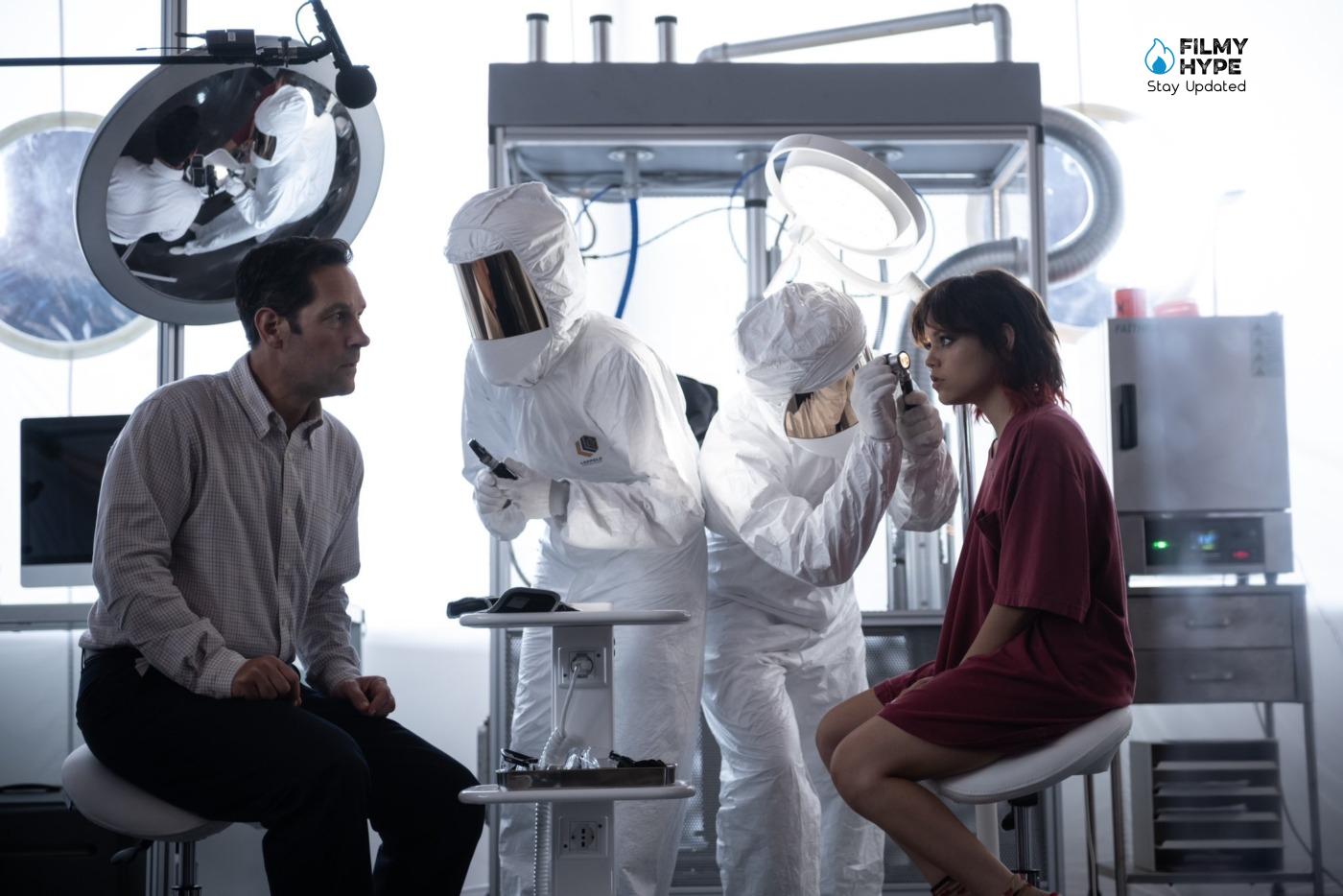
In this context, the unicorn becomes a symbol of lost innocence and desire for wonder sacrificed on the altar of profit. With a look imbued with irony and bitterness, Death of a Unicorn tells of a world where even a mythological creature can be transformed into a commodity. The “Leopold family” – composed of the patriarch Odell (Richard E. Grant), his mother Belinda (Téa Leoni), and his son Shepard (Will Poulter) – represents three different but complementary faces of distorted capitalism: the exploiter, the narcissist, and the parasite. In stark contrast to them, Ridley is the only one who recognizes the symbolic value of the creature and senses its primitive, uncontrollable force. Together with her father, she finds herself involved in a conflict that takes on the tone of a battle between human greed and freedom of nature: a symbolic struggle between what man wants to possess and what he should simply respect.
The main weak point of the film, however, unfortunately concerns the protagonists: the segments between father and daughter, played by Paul Rudd and Jenna Ortega, although entrusted to two expert actors, are flat and repetitive. The constant evocation of the deceased mother represents the only psychological element in support of their relationship, but it is not enough to make it credible or engaging. Also, on a visual level, the direction shows some fragility: especially in the final part, the assembly appears disordered and confused, compromising any attempt to build tension. The explosions of blood and violence, taken to the extreme, sometimes manage to shake the viewer from monotony, but their effect remains limited to short visual shocks. Overall, these are momentary gimmicks that cannot compensate for the structural deficiencies of the film.
Death of a Unicorn Review: The Last Words
Ultimately, “Death of a Unicorn” represents a courageous and largely successful cinematic experiment, capable of entertaining and, at the same time, stimulating deeper reflections. A work that, despite some imperfections, deserves to be discovered and appreciated for its originality and for the courage to follow less-traveled narrative paths. We admit that we had fun watching Death of a Unicorn, but there was some drop in rhythm in the central part and a CGI not always enough to make creatures and their movements. Defects that do not spoil the experience and a film that manages to get noticed and gives two poor hours of healthy and appetizing gore in which Jenna Ortega to Paul Rudd wallow with taste. Death of a Unicorn is a film that starts from an original idea and full of potential but cannot fully develop it. Alex Scharfman sings an ambitious debut between black comedy and social allegory, with satire aimed at capitalism and the pharmaceutical sector. However, the narration quickly frayed, the protagonists are weak, and the direction struggles to maintain consistency and tension. Despite some successful finds and a talented cast, the film proves to be uneven, fluctuating, and more interesting for the themes it raises than for the way it tells them.
Cast: Paul Rudd, Jenna Ortega, Will Poulter, Téa Leoni, Richard E. Grant, Anthony Carrigan, Sunita Mani
Director: Alex Scharfman
Filmyhype.com Ratings: 3/5 (three stars)




